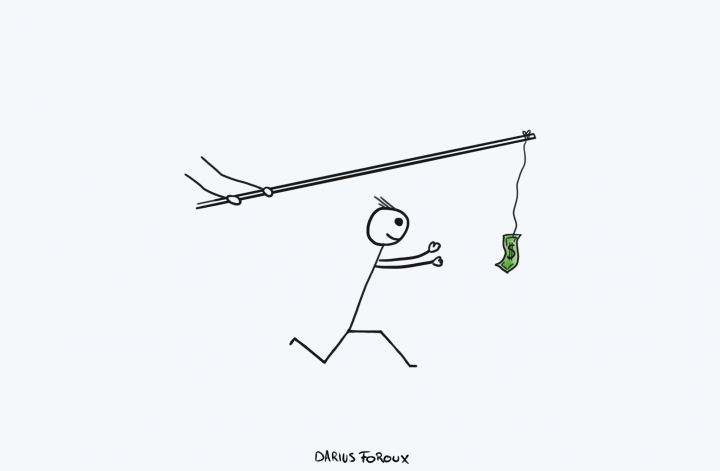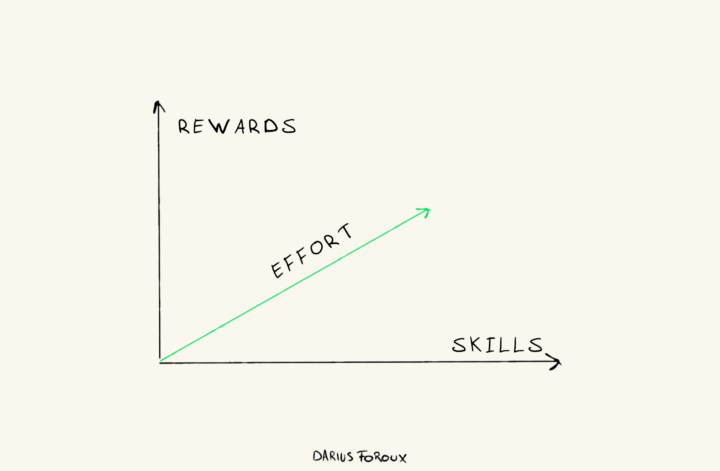I always had a love/hate relationship with trading stocks. I loved it from the moment I opened my first brokerage account, almost 15 years ago. But I kept losing money trading stocks for years.
I would buy hot stocks, feel good when they went up for a while, but sooner or later there was always a crash. And I always sold at a loss or I got out at the price that I bought. That was the painful part of trading stocks.
But no matter how much I lost and how much time I stepped away from the market, I always loved publicly traded stocks. To me, there’s something special about the stock market. I don’t know exactly what the charm is, but I think it’s the accessibility.
In theory, any person can participate and make money by simply buying a stock at the right time. Investing and trading have the characteristics of a game; gambling, excitement, and solving problems.
There’s nothing else on the planet that has all of those things. And because the stock market is so accessible, there are a lot of participants. The way I see it, the stock market is the biggest game on earth, which has been going on for the longest amount of time.
And the two biggest emotions that are always present in this game are fear and greed. Because there are so many opportunities in the market, you feel the pressure to jump on every stock that seems to be going up.
Let’s face it, we all have experienced the regret of not buying a particular stock. I remember looking at Tesla in 2015 and being THIS close to buying a substantial amount of stock. Since then, the stock has been up more than 2,000%.
Everyone has stories like that. I was talking to a friend recently who said, “I wish I didn’t sell Apple in 2018.” He thought the stock had its best days behind them.
All these types of missed opportunities do not only cause regret; they also lead to the fear of missing out on new chances to get rich. When we see a new opportunity, we think, “What if this is the new Tesla?”
That’s the classic fear of missing out. It’s as old as trading stocks itself. Jesse Livermore, the legendary trader who made (and lost) his fortune in the market during the early 1900s, said that his biggest mistake was that he traded too much in his early years.
After consistently making and losing money in the market, he realized he couldn’t build any substantial wealth if he kept going up and down like a yo-yo. After he made millions, he often said:
“Money cannot consistently be made trading every day or every week during the year.”
Whether you’re a short-term trader or a long-term investor, if you’re too active, you probably will lose as much as you win. And if you’re unlucky, you’ll even lose more than you win. Both situations are undesirable.
When you have an investing strategy, you can rely on your rules to generate returns. That probably means you’ll have to pass on 99% of the opportunities you’ll encounter. But that’s okay. No one has a perfect success rate.
That’s the beauty of investing. You can be wrong many times. And if you miss out on a bunch of opportunities, so what? As long as you’re right on a few things that actually pay off, you’ll still win.




